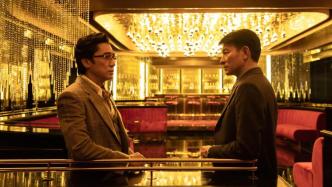
Among the many New Year's Day movies, "Goldfinger" still looks very scary. If nothing else, the lineup is indeed strong enough. In addition to Andy Lau and Tony Leung, others who have won Best Actor include Simon Yam, Tai Bo, and Best Supporting Actor Pak Pak and Jiang Haowen. As for Charlene Choi, Alex Fong, and many other familiar faces from Hong Kong films, there is no need to waste any time introducing them.

"Goldfinger" poster
It can be seen from the publicity before the release that Andy Lau and the others are quite serious. After all, the decline of Hong Kong films in the past two years has been obvious to all. How could these big names not stand up and take on the responsibility of being the mainstay. But unfortunately, it is no longer possible for Hong Kong movies to regain their glory by relying on star casts and main themes. Rather, the problem with "Goldfinger" is the structural and essential problem of Hong Kong's commercial films.
What's the problem? The reason why Hong Kong movies of that year can become the collective memory of a generation of audiences is that, firstly, the modern urban "spectacles" they created are really fascinating; secondly, Hong Kong movies have their own industrialized assembly lines, with fast production speed and high efficiency. Many mainland colleagues were amazed.
However, as the urbanization process in the mainland continues to deepen, the modern urban life in Hong Kong movies is not far away from us, and the sense of mystery that once existed naturally no longer exists. As for the assembly line production model that was once the unique advantage of Hong Kong films, it has begun to have a counterproductive effect, becoming a constraint and shackles on creation, seriously affecting the quality of works.
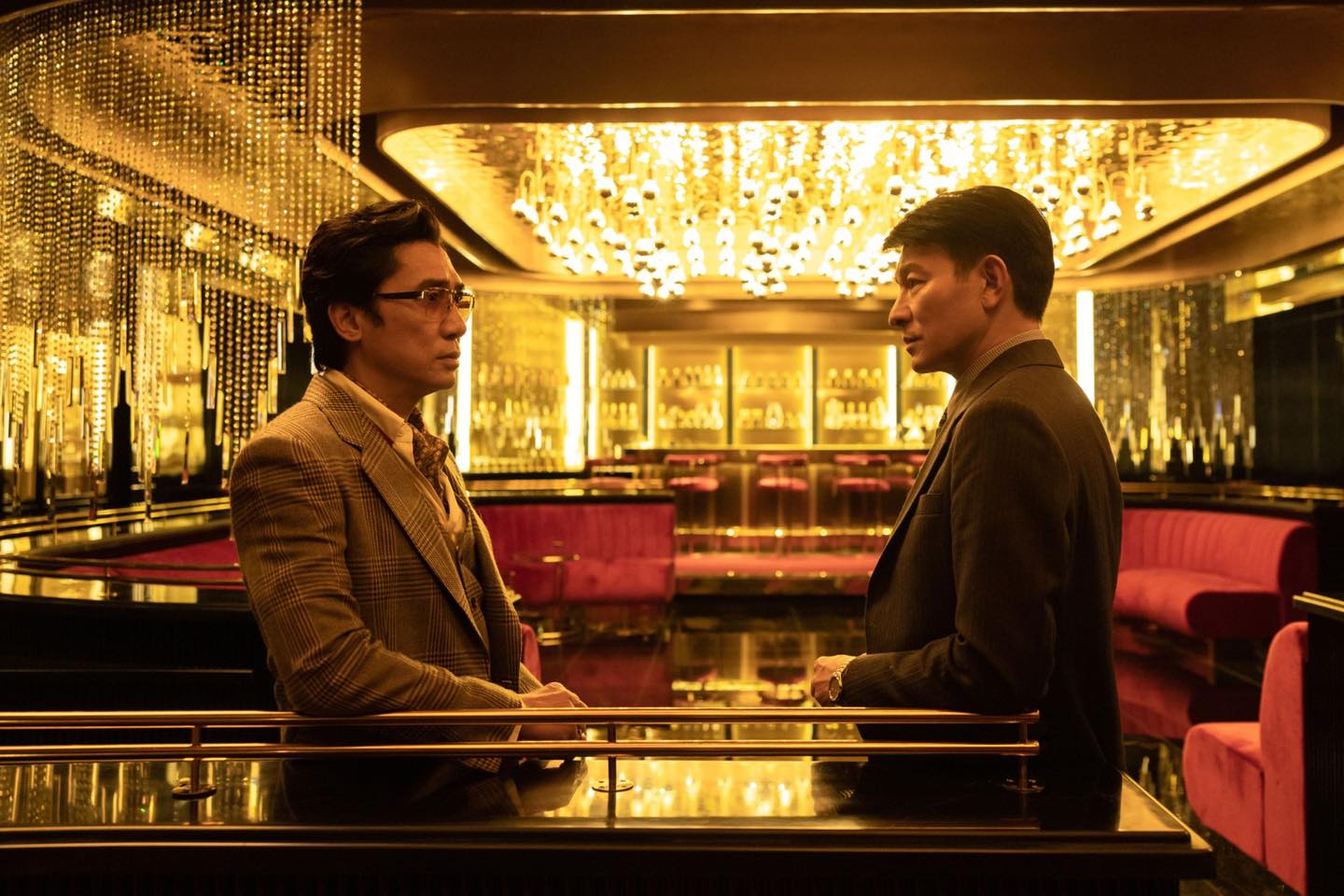
"Goldfinger" stills
how you said that? The so-called assembly line production, to put it bluntly, is a modular assembly method. At that time, Wang Jing, Liu Zhenwei and others may not have high artistic standards, but they had a keen sense of business and were good at putting together the elements that the audience liked to see. So in the past, we often felt that some Hong Kong movies were "nonsense". This was not only because of the style, but also because the plot was really "random" - one moment there was a car ride, another moment there was a gunfight, another moment there was romance, and another moment there was romance. Benevolence, righteousness and morality... are messy, but at least it can be guaranteed that there is always one that suits you.
Years later, "Goldfinger" still follows the above tradition. A 126-minute movie is said to be quite large, but after watching it for more than two hours, I still didn’t understand: Tell me, what is this movie trying to say?
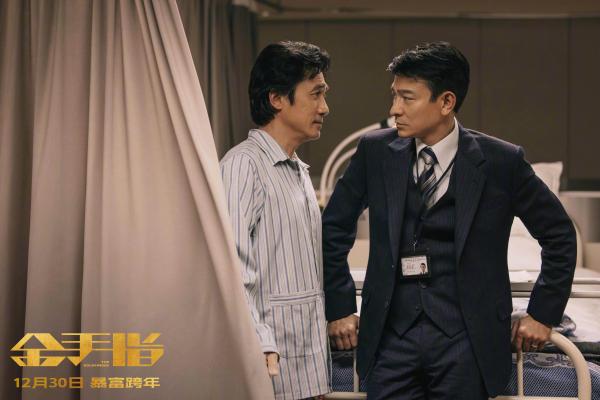
"Goldfinger" stills
Let’s talk about the characters first. A prominent problem in this film is the serious flattening of the characters. It is certainly worth looking forward to the reunion of Andy Lau and Tony Leung Chiu-wai after "Infernal Affairs", but the lack of explanation of why the former is obsessed with chasing the latter seems very pale; the latter does not have much charm as a character except for trying his best to show his arrogant expression. Word. What's even worse is that the interaction between the two also lacks spark, let alone chemistry.
In fact, many characters in this film have a sense of story. For example, Zhang Jiawen, played by Charlene Choi, is willing to be used by Tony Leung because she loves him. This tangled and even morbid emotion is originally very interesting, but the revolving plot does not provide much room for Ah Sa to show off. The director seems to be completing a large-scale project. Each character is a "tool man" born to achieve the goal. He only needs to stand in his own position and nothing else needs to be considered.
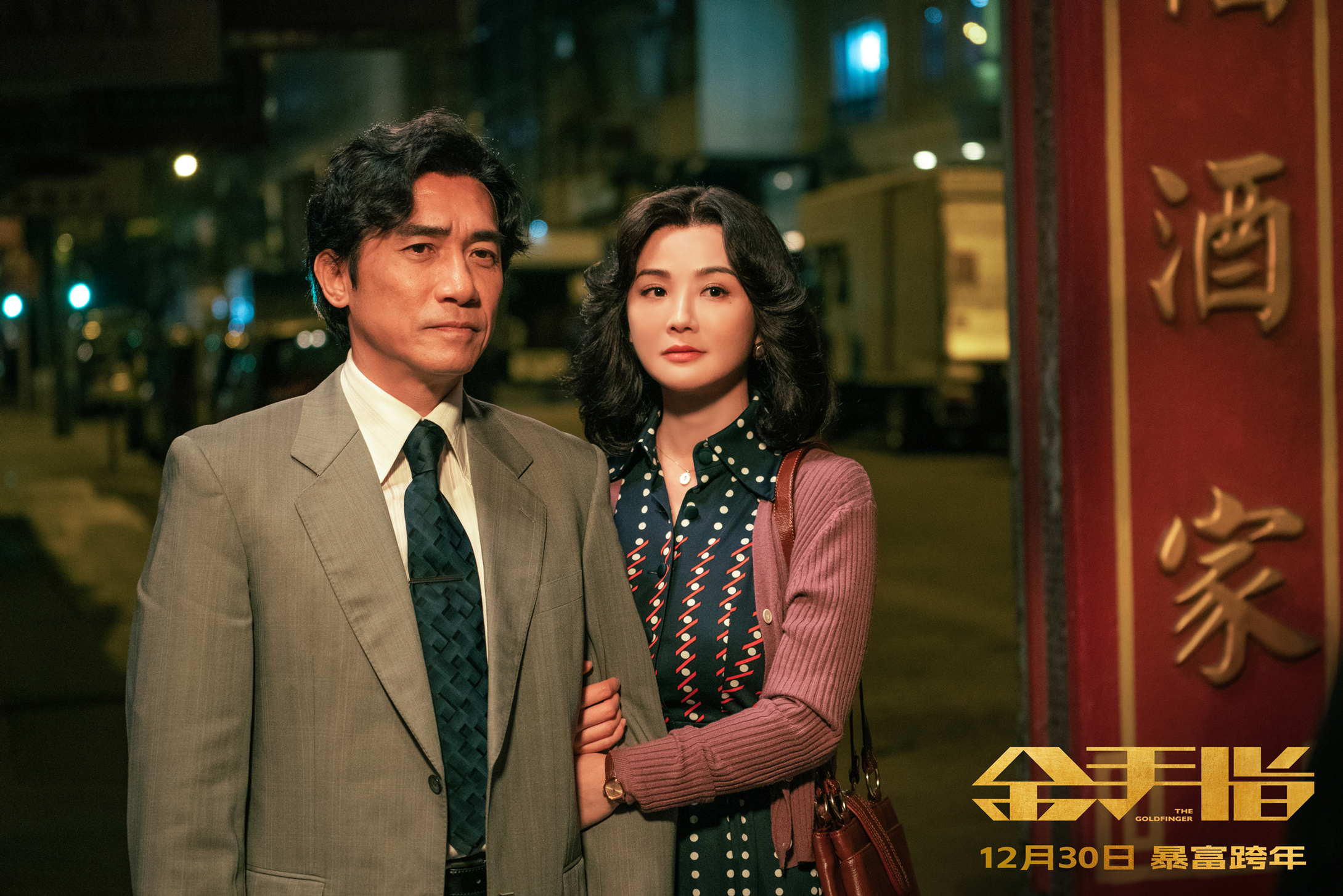
"Goldfinger" stills
This is the disadvantage of modular assembly - because everyone is a "module", they are also highly replaceable. The audience cannot understand the emotions of the characters, the actors are just doing routines, and the final result is naturally self-evident.
Let's talk about the plot. Although there is an ambition to create a Hong Kong version of "The Wolf of Wall Street", to be honest, if you don't have certain professional knowledge of stocks and securities, ordinary viewers will really not be able to figure out the reason for a while. What is the brilliance of Tony Leung Chiu Wai's methods and how Andy Lau caught him? Until the end of the film, no one got a clear answer, and the director didn't seem to care about the audience's feelings at all.
This is also a problem with modular assembly - the important thing is to find a way to fill the plot holes. As for whether the logic of connecting them is reasonable and smooth, no one cares. As a result, the old problems of Hong Kong movies reappeared. One time, Andy Lau was trapped in family troubles, and the other time, Tony Leung was in crisis, and every step of his life was startling. The audience has never been able to figure out whether the movie is meant to show Andy Lau's justice or Tony Leung's ambition. The whole movie just jumps between various themes repeatedly, never finding its own point of strength.
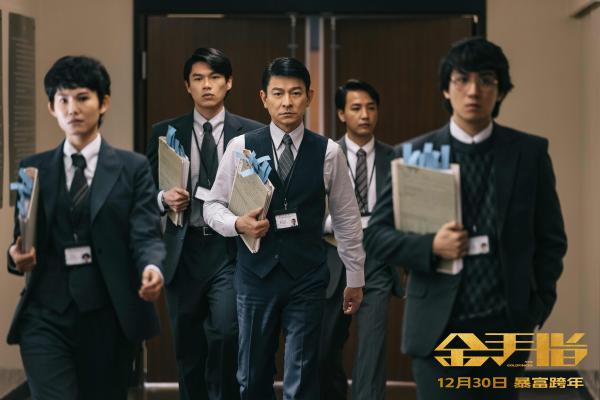
"Goldfinger" stills
It has to be said that Hong Kong movies today are indeed getting further and further away from the audience. This is not only because Andy Lau, Tony Leung and others are getting older, but also because they have gradually fallen out of touch with the times. As many netizens have reported, the ending of the movie seems very baffling - Tony Leung was able to avert so many dangerous situations before, so why did he confess his guilt so readily in the end? In fact, if you have a certain understanding of Hong Kong movies in the 1980s and 1990s, you won't be surprised by this - the editor found that it was getting further and further away, so he hurriedly concluded it. This is an old tradition of Hong Kong movies. . Even if it's a classic like "A Better Tomorrow", the plot doesn't stand up to scrutiny, let alone "Goldfinger"?
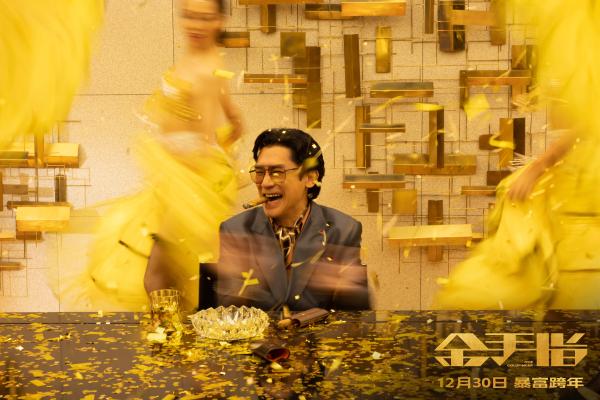
"Goldfinger" stills
Looking at the Hong Kong movies released in theaters in 2023, the biggest thing in common is the "modularity" of narrative methods and subject matter selection. Recent films such as "Stealth", "Breaking Point" and "Rage" have been shot over and over again, but they are still the same old-fashioned things about undercover, betrayal, brothers and conspiracy. Not only are the leading actors in each movie completely interchangeable, but even the plot elements can be exchanged without much feeling of dissonance. If we continue to rest on our laurels without making any progress, even if the four kings are assembled in one movie, it will still be of no avail.
Take a look at the New Year's Day movies. "Twinkle Twinkle Star" focuses on a romantic love that attracts boys and girls, and "The Annual Party Can't Stop!" " provides a timely psychological massage for working people at the end of the year. Even "If You Are the One 3", which has been criticized fiercely, can at least provide some insights and self-deprecation for middle-aged people... As for "Goldfinger", it seems that it does not I don't care about what the audience likes or needs, I just follow the original path and continue shooting, not willing to put more thought or use my brain.
Although everyone still has feelings for Hong Kong movies and always holds the hope that they can usher in a second spring, if this attitude does not change, nothing will happen. Hong Kong movies should no longer be obsessed with old dreams and should look up to the world.


